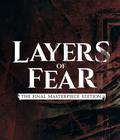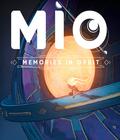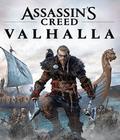Buy Assassin's Creed: Valhalla
The Assassin's Creed franchise has been an incredibly successful and long-running series for Ubisoft, but it has its flaws. The series has struggled to innovate over time, starting with yearly iterations that never pushed the franchise's boundaries but recycled what was tried and tested. Its complete overhaul and transition from action-adventure to action-RPG with Assassin's Creed Origins pushed the franchise into a new and exciting direction, but Ubisoft is already falling back into old patterns. While the newest entry, Assassin's Creed Valhalla, tries to change quite a few things, it spends too much time finding compromises rather than committing to its more promising aspects.
Valhalla throws us into ninth century England and Norway, where we follow Eivor and their clan of Vikings. The game does not waste much time — not even for its usual real-world Abstergo shenanigans — and establishes Eivor's backstory in Norway and the reason they and their brother Sigurd venture off to establish a settlement in England for their clan. As Eivor, we travel between areas to forge alliances by assisting a king, overthrowing one, or resolving similar power struggles. As such, Valhalla's story feels like a compendium of many smaller arcs woven into one. Similar to Odyssey, there is the main storyline to complete, but smaller adjacent stories also run in parallel, such as defeating the Order of the Ancients (a list of targets to assassinate) and a spiritual story involving Norse gods and folklore.
Expect to spend about 50 hours completing the main story and several additional hours to tie up loose ends. Valhalla's story has issues sustaining momentum and interest over time, which is almost a given at this length. As you complete the contained story arcs of each region, you often meet a new set of characters; some overlap with other story segments, but most are confined to the story content in their respective region. The result is that Eivor meets a ton of characters, but the player spends little time with any of them. In many cases, there is a profound lack of attachment and character development. This even extends to Eivor. Similar to Odyssey, we can play either a male or female version of the character, and this time, we can even swap between them if we change our mind later on. While the voice actors do a decent job, there is no real standout performance here like there was with Kassandra in Odyssey.
Eivor is an inconsistent character, and they often make decisions in bewildering ways. In conversations, we can choose our answers and sometimes need to make a decision that may alter the story, but these choices often have minor ramifications or ramifications that I didn't care about, which ties back into how little time you spend with many characters and sub-stories. Our protagonist constantly changes opinions, so what may bring Eivor joy or anger in one moment might spark an entirely different reaction in comparable instances. That hindered much of the role-playing aspect of the title for me and reduced my enjoyment of the main story.
Valhalla seems to focus on righting many of Odyssey's flaws. The segmented world and map area were overwhelming and felt copied and pasted rather than organically constructed. In Odyssey, travel distances over the sea were long and didn't offer too many ways to engage with the world except by sinking other ships; players almost exclusively fast-traveled across the behemoth of the map. Valhalla is technically a larger map, but it feels more beautiful and organic. Visiting distinct landmarks will lead to loot, a puzzle, or maybe a world event. Ubisoft has reduced its map clutter having the color of the dot signify the event type and the size of the dot indicating the event's significance, thereby making it much less overwhelming to navigate and prioritize side content.
Valhalla also moves away from side-quests and handing out loot like candy, albeit with mixed results. Side-quests are replaced with world events, which are small, story-driven tasks. They are a delightful way of distracting you from the main story with funny and memorable errands that bring the world alive. Valhalla has a more subtle approach to loot. Equipment chests are deliberately placed in the game world and often inaccessible without solving a small puzzle. I liked not being handed gear without any effort, but Valhalla has a very restricted palette of puzzles that mostly involve blowing up walls, finding hidden entrances, or finding keys. What begins as a more engaging way to explore and acquire new gear quickly becomes tedious due to the lack of variety in the puzzles.
Initially, I loved the idea of cutting down on loot, but much of the weapons and armor in the game are underwhelming. While I disliked Odyssey's barrage of loot and the requisite inventory management, Valhalla seems to swing the pendulum too far in the other extreme direction; you can't even sort your gear properly. I mostly stuck to the same equipment, since visual appearance and buffs felt inconsequential. Rarely did I cycle through my gear to find the one with the best buffs or damage or feel an incentive to find epic items. It does create attachment to your gear, and I completed a set that I used until the end of my journey, upgrading all of the parts as needed.
Eivor levels up almost every couple of minutes, which comes with two points to invest in the skill tree. It's a clear attempt to mitigate the tedious grinding in Odyssey. The Valhalla skill tree system is good in that you constantly improve, but the tree is so incredibly large that you need to scroll to see every corner. It's overwhelming, and there are so many that each has almost no conceivable benefit. We get stronger over time, but minuscule stat increases are almost imperceptible in actual gameplay.
The full skill tree is not accessible from the outset. There is a charisma skill that is new to the series, and it's leveled up separately by completing flyting tasks — impromptu poetry slam, if you'd like. Each flyting victory levels your charisma, and while it isn't used often, it can be helpful in situations to avoid combat or pay quest characters to find a way out of a sticky situation. I like the charisma skill since it's one of the stats that I usually seek out in RPGs, but it's not fleshed out well enough to make a dent in the experience.
As for combat, the basics haven't changed much. It's still a relatively simple combat system that offers more freedom in your weapon choice. Shields are back in the arsenal, and all small weapons can be dual-wielded, with an additional skill enabling you to dual-wield two-handed weapons. Alas, there isn't enough weapon variety in Valhalla to make me excited about dual-wielding them. The ability to freely match different weapon types would've worked incredibly well in Odyssey, where you usually had an arsenal of crazy weapons with interesting buffs. It's clunky, and apart from a few different animations, it doesn't provide benefits.
Combat in Valhalla is often gritty and dark. It can be incredibly exhilarating to storm a castle or monastery with your merry clansmen and then string together finishing moves as you dismember half of an army, but it quickly gets repetitive. Since Valhalla is such a long game, you'll see most of the finishers by the 10th hour. It also isn't a challenging game. While I appreciate that Ubisoft has heard the complaint about grinding and damage sponge enemies, the stun system seems to be an over-correction. Each enemy has a stamina gauge that depletes over time, eventually leaving them open to devastating and brutal finishers. You have to either block or target their weak points, leaving a fast and easy way to insta-kill most enemies. I played the game on the hardest difficulty level, and the experience wasn't very challenging — including boss fights.
It also doesn't help that the major combat set pieces, castle sieges, are nothing more than a prolonged combat sequence with a door ram minigame between two segments. They're fun the first two times, but then they become a race from the front gate to the finish line. They are used over and over again throughout the story and could have turned out to be a grand spectacle, but there aren't any meaningful or exciting changes in the formula. You'll also raid a lot of monasteries since they contain the resources needed to upgrade our settlements, but those aren't exciting, either.
This is where Valhalla loses some of its purpose. If the game is 50 hours long, there has to be a way to keep the player interested: a good combat system, challenging difficulty, or loot and reward systems that are worth the time investment. It shows glimpses of promise in these areas — but not to the degree needed to get you through the massive storyline.
I enjoyed how world exploration and your settlement are tied to the way Vikings settled the country. While you're rarely on open waters, your boat and clan can use rivers to traverse larger distances, which is a tremendous way to see the countryside as you radiate out from your starting point in the center of the map. While our settlement begins with a simple array of houses, we can quickly build a tattoo shop, an assassin's bureau, and other buildings with varying buffs. Most of what you build increases the stat buff you get when holding a feast in your settlement, similar to the stew you prepare in Red Dead Redemption II. Given the low difficulty level, having a feast buff often seemed unnecessary, though.
We played Valhalla on the PC and had smoother sailing than with its prequels. There were hitches — e.g., a memory leak and issues with storage — that were mostly ironed out by moving the game to an NVME SSD and installing the game's day-one patch. Valhalla is still a Ubisoft open-world game, so there are plenty of bugs that have varying impacts on the experience, such as NPCs freezing, animations glitching or overlapping, NPCs spawning into one another, quest characters who you cannot talk to, maps not loading, etc. Thankfully, we did not have to deal with crashes or game-breaking bugs, but Valhalla isn't in a polished state, so be aware of that before jumping in.
Valhalla features a decent slate of control options for visual effects, and we were able to play it in 1440p with 60fps using a four-core CPU, a 2070 Super, and mostly high settings. The visuals are inconsistent, with some areas not looking so hot while the visual fidelity of other areas is completely breathtaking. There are plenty of assets that don't look good upon closer expectation, and that also extends to NPCs and quest characters. There's an issue with facial animations and lip-synching that creates odd moments in cut scenes. Music, on the other hand, is consistently good and mostly keeps to the background. I enjoyed all of the music in Valhalla, which is rare for me for a video game.
It may sound like I've been constantly ripping into Assassin's Creed Valhalla, but it's more complicated than that. I love the world and exploration, and I love that Ubisoft made a concerted effort to address many people's issues with Odyssey. I love that I don't get constantly blindsided by over-leveled mercenaries, I love that assassin missions have death cut scenes, and there are so many side stories to explore. It just doesn't come together as well as it could. It feels like the development team has branched out to try new things, but none of the good ideas and changes were followed through, making them feel like shallow attempts to change things. This would likely not have been a criticism if we were talking about a runtime of fewer than 30 hours. With a runtime of 50+ hours, though, these sorts of things eventually come crashing down as player fatigue sets in. I still enjoy Valhalla for what it does, but it hurts to know that this could've been a tighter, greater game that delivered on its ambitions rather than merely hinting at them.
Score: 7.3/10
More articles about Assassin's Creed Valhalla













 Assassin's Creed Valhalla throws players axe-first into ninth-century England, an age of warring kingdoms and Viking conquest. Wars will rage. Kingdoms will fall. This is the age of the Vikings.
Assassin's Creed Valhalla throws players axe-first into ninth-century England, an age of warring kingdoms and Viking conquest. Wars will rage. Kingdoms will fall. This is the age of the Vikings.















































